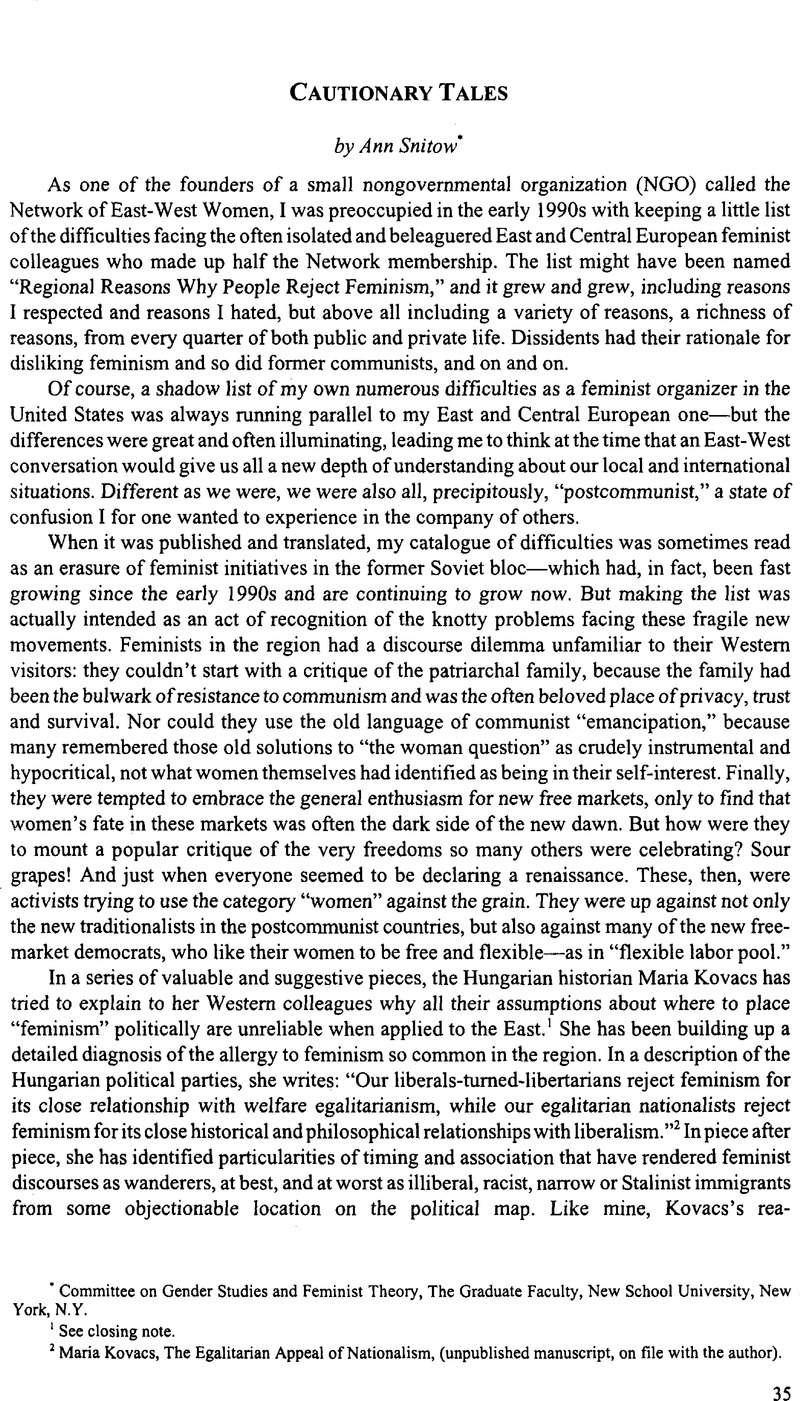Published online by Cambridge University Press: 28 February 2017

1 The Graduate Faculty, New School University, New York, N.Y.
1 See closing note.
2 Maria Kovacs, The Egalitarian Appeal of Nationalism, (unpublished manuscript, on file with the author).
3 Juliet Mitchell has described how the same displacement occurred in England. When she first worked on women’s issues in the early 1960s, she could not obtain labor statistics disaggregated by gender. In the 1980s, after twenty years of feminism, the gender variable was everywhere and it was class that had become invisible in the statistics. She argues that feminist demands are often unselfconsciously complicit in the developmental leaps of capitalism, so that feminists need to be aware how their work articulates with other categories of social analysis. Mitchell, Juliet, Reflections on Twenty Years of Feminism, in What is Feminism?, at 34–48 (Mitchell, Juliet & Oakley, Ann eds., 1985)Google Scholar.
4 Carol S. Vance (unpublished manuscript, on file with the author). See closing note.
5 Schild, Veronica, Market Citizenship and the “New Democracies”: The Ambiguous Legacies of Contemporary Chilean Women’s Movements, Social Politics, Summer 1998, at 232-49CrossRefGoogle Scholar.
6 Mitchell, supra note 3.